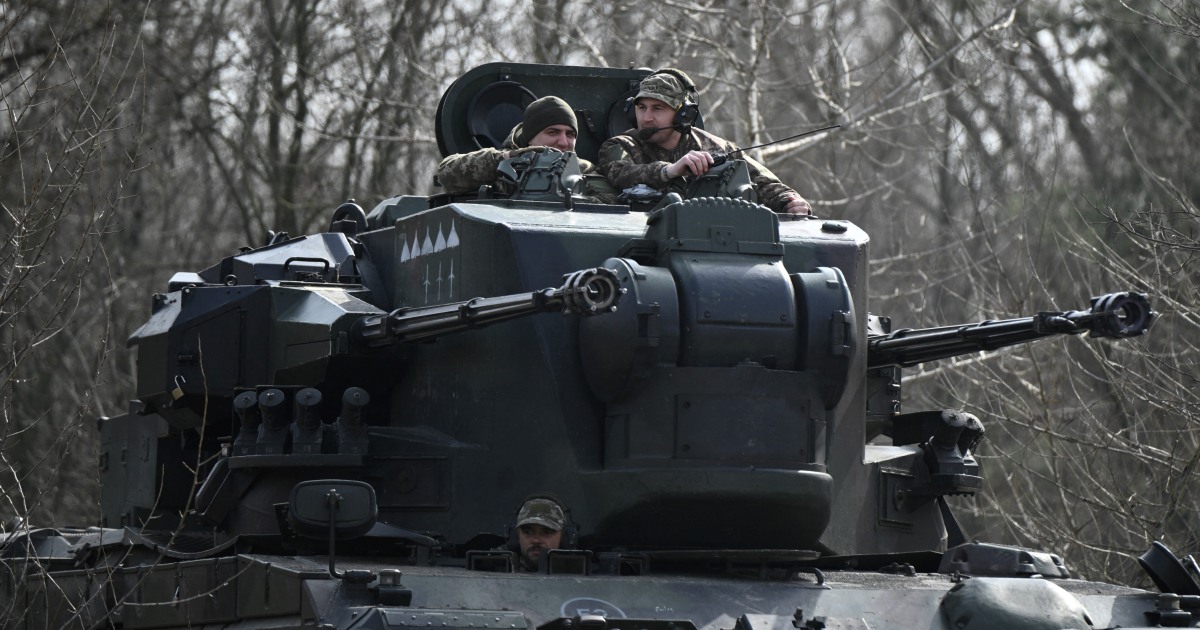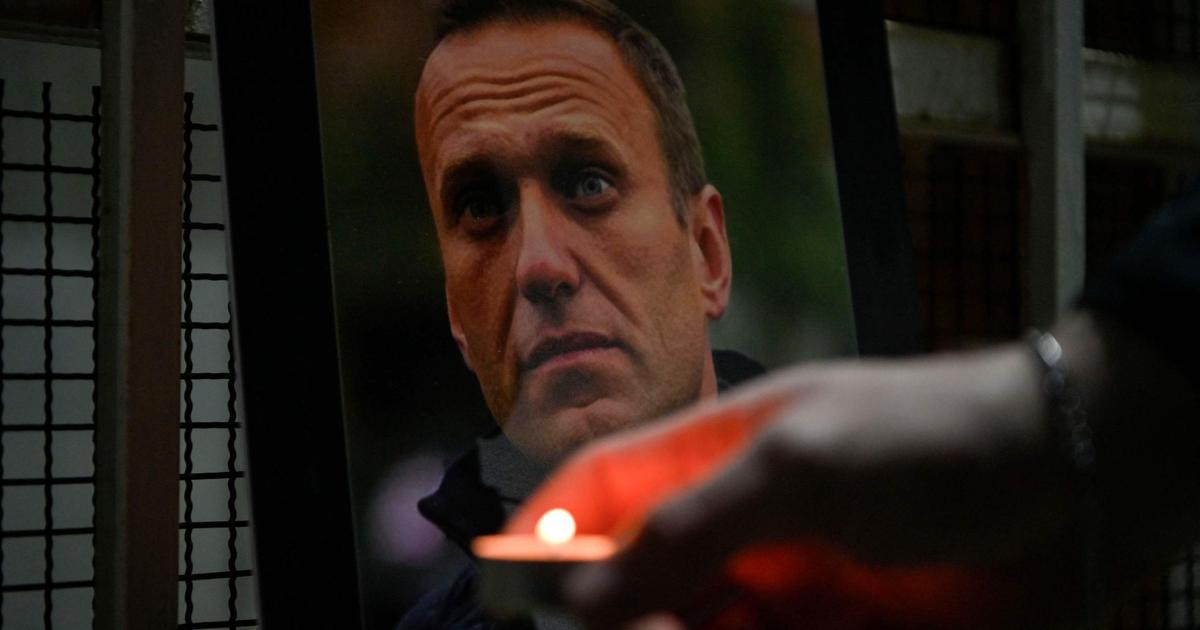Enlarge image
Ukrainian soldier in Kherson (on December 8)
Photo:
Evgeniy Maloletka / dpa
That says Kyiv
According to Ukrainian sources, the southern Ukrainian city of Cherson was the target of massive Russian attacks on Thursday.
"Since the beginning of the day alone, Russia has bombed Kherson more than 16 times, just in a single day," President Volodymyr Zelenskyy said in his evening video message.
Kherson has been under repeated Russian attacks since Ukraine recaptured it a month ago.
Regional governor Yaroslav Yanushevich told Telegram that the latest attacks had caused the city's power supply to collapse.
According to the Ukrainian Presidential Office, two people were killed in the Russian attacks on Kherson.
Zelenskyy accused Russia of also killing a volunteer worker in a Red Cross station.
"The woman who died was a paramedic, a volunteer," he said in a video address.
The Red Cross in Ukraine also reported the death.
According to Zelensky, there were also "brutal Russian attacks" in the Donbass and Kharkiv regions on Thursday.
"The occupiers are throwing everything and everyone on the offensive," Zelenskyy said.
“They cannot defeat our army.
So they physically destroy every town and village so that there are no buildings, not even walls, that can be used for any kind of defense.”
That says Russia
Russia wants to double the number of test launches of its ICBMs from four in 2022 to eight in 2023.
According to the military newspaper Krasnaya Zvezda, the commander of the Strategic Missile Forces, Sergei Karakayev, said so.
Accordingly, the eight tests are to be carried out from two points of view: one is near Murmansk in the north;
the other near Volgograd in the south.
In April, Russia tested the new RS-28 Sarmat intercontinental ballistic missile capable of carrying nuclear weapons, also known to NATO under the code name SS-X-30 Satan 2.
In his statements, Karakayev explicitly referred to this type of missile: The Sarmat would be the basis for the missile arsenal.
"Under the current circumstances, creating such a missile system for Russia means strengthening its strategic security."
International reactions
The
European Union
can pay Ukraine new financial aid of up to 18 billion euros from January.
The heads of state and government gave the go-ahead for the release of the funds at their summit on Thursday evening.
This is intended to finance hospitals and schools, among other things.
It is to flow in the form of heavily discounted loans in monthly tranches of 1.5 billion euros each.
At ambassador level, the EU countries also agreed on what is now the ninth package of sanctions against Russia.
Entry and property bans are planned for almost 200 other responsible persons and organizations as well as new export restrictions for goods that can be used for civil and military purposes.
Deliveries of drone components to Russia and Iran are also prohibited.
At the EU summit, there was still no agreement on a gas price cap.
It should succeed on Monday at the meeting of energy ministers.
The
US
is expanding its training programs for Ukrainian soldiers.
Defense Department spokesman Pat Ryder said the training, which was previously focused on the use of weapons, will be supplemented by maneuvers.
In the future, the training will include units for 400 Ukrainian soldiers every month, also as a supplement to programs from the EU and Great Britain.
The exercises should therefore take place at training places in Germany.
According to the US Department of Defense, the United States has provided more than $19 billion in military aid to Ukraine since Russia's war of aggression began in late February.
The
federal government
wants to step up its efforts to maintain the energy supply in Ukraine.
The Federal Ministry of Economics will contribute around one hundred million euros to a program of the European Energy Community this year, the ministry announced.
The budget committee has released the necessary funds for this.
The contribution from the Ministry of Economic Affairs is in addition to the contribution from the Federal Foreign Office of 30 million euros.
economic consequences
EU Commission President
Ursula von der Leyen
has promised the people of Europe that 2023 will be an economically difficult year.
"The war has massive consequences for our economy, and that will continue next year," she said at the EU summit.
A predicted gap of 30 billion cubic meters of natural gas next winter can be filled.
However, one is still in an environment of very high energy prices.
It is therefore important that the EU countries do not outbid each other, but use their market power to buy gas.
The
international development bank FCI
wants to support companies in Ukraine with aid worth 2 billion US dollars (equivalent to around 1.88 billion euros).
Initially, the focus is on rebuilding and maintaining the critical infrastructure - for example through financing for farms and importing fuel.
Ukraine's private sector has shown "unprecedented resilience" in the face of the war, but it needs to be supported and expanded, said IFC director Makhtar Diop.
"The provision of capital during this extraordinary time is essential to keep businesses and essential services afloat and, when the time comes, to prepare for the massive recovery efforts that lie ahead."
The Russian attacks in Ukraine have partially destroyed infrastructure in vital areas such as energy, transport, agriculture and also water and health care.
As part of the World Bank Group, the FCI (Finance, Competitiveness and Innovation) development bank has specialized in the promotion of private companies.
It offers various financing products such as loans, equity investments, guarantees and advice.
What is happening today
One day after the price brakes for electricity, gas and heat were passed in the Bundestag, the Bundesrat also wants to decide on them today.
This is intended to cushion the consequences of the sharp rise in prices for consumers and companies.
For private households and small and medium-sized companies, the price brakes are to apply from March.
Retrospective relief is planned for January and February.
For large industrial consumers, the gas price brake should take effect from January.
The approval of the Federal Council is considered certain.
aar/dpa/AFP








/cloudfront-eu-central-1.images.arcpublishing.com/prisa/KMEYMJKESBAZBE4MRBAM4TGHIQ.jpg)



